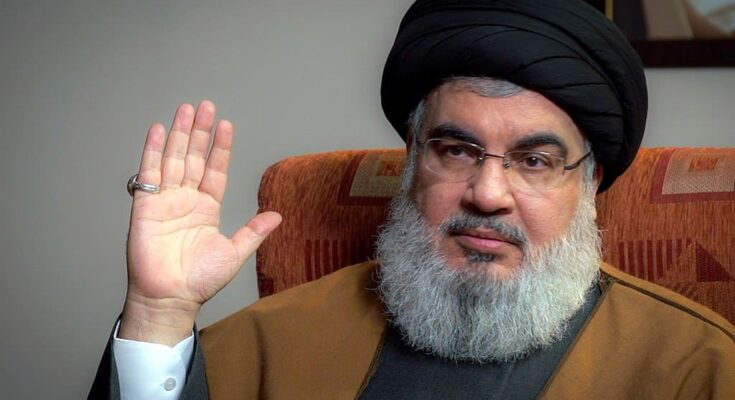
Hezbollah leader Hassan Nasrallah was killed on Friday during airstrikes conducted by Israel targeting Hezbollah headquarters in Beirut, the Israeli army announced on Saturday. The strikes were the biggest Israeli attack on Lebanon following a recent escalation.
According to the Israeli military, the “precise strike” as they called it, targeted Hezbollah’s central headquarters, “embedded under residential buildings in the heart of…Dahieh in Beirut.” Dahieh is the predominantly Shia Muslim suburb in southern Beirut.
The Israeli military attacks were felt across the capital city, Beirut, of Lebanon and sent thick clouds of smoke up in the air. Lebanon’s health ministry has already reported that at least six other people were killed and 91 wounded in Friday’s strikes.
For more than twenty-four hours, there was confusion about Nasrallah’s fate. Conflicting reports were making rounds around the world. Israeli media claimed Nasrallah was killed during a large airstrike. According to other media reports, however, Nasrallah had managed to survive.
Nonetheless, on Saturday morning and after several hours of speculation, Israel confirmed his death, stating, “Hassan Nasrallah will no longer be able to terrorize the world.”
Hassan Nasrallah is the son of a vegetable vendor who rose to become one of the most powerful figures in the Middle East and Israel’s mortal enemy. He took over as chief of Hezbollah more than thirty years ago in 1992 and transformed the Islamic group into a formidable military and political force with significant leverage over Lebanon.
Under Nasrallah’s leadership, Hezbollah played a key role in ending Israel’s 30-year occupation of southern Lebanon in 2000 and fought a 34-day war with Israel in 2006. Nasrallah famously declared “divine victory” after the 2006 war, projecting himself as a hero in the Arab world and the fundamentalist Muslim community.
Who are Hezbollah and Nasrallah, targeted by Israel?
Hezbollah is a Lebanese Shia Islamist political party and armed resistance organization that also delivers social assistance and religious instruction to its members and the wider Lebanese nation.
Its political branch, the “Loyalty to the Resistance Bloc party,” has a total of fifteen members in the Lebanese Parliament. It was established in reaction to Israel’s invasion of Lebanon in 1982, and its Secretary-General, Hassan Nasrallah, has been leading the group for more than thirty years.
Hezbollah has been regarded by the international community as a state within a state due to its immense power in Lebanon. It has evolved into an organization with military and civil power, a radio and satellite TV station, social services, and large-scale military deployment of militants outside Lebanon’s borders.



